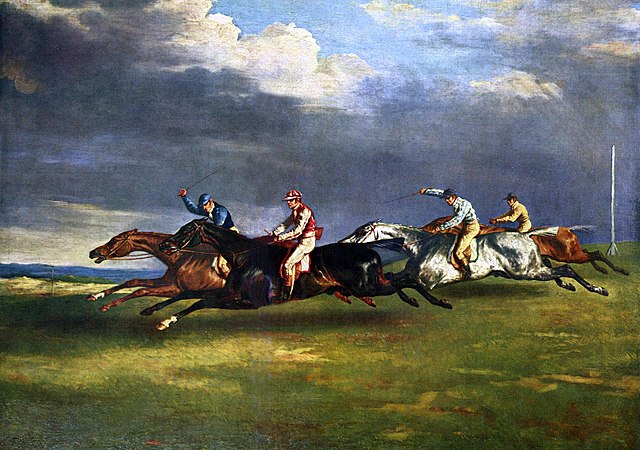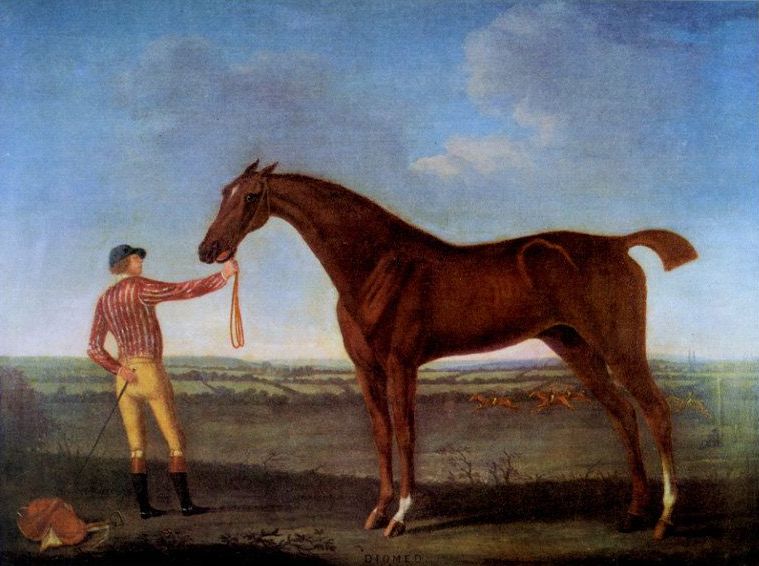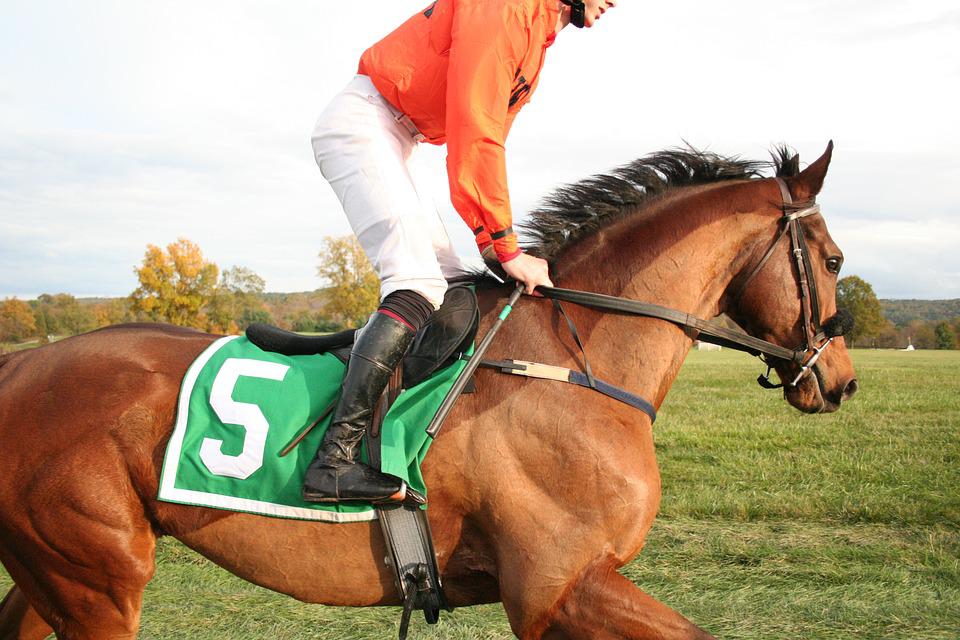Horse racing is arguably one of the simplest sports to bet on in sportsbooks or sports betting houses, which is probably also one of the reasons why betting on horse racing games is very popular in different countries in the world. However, before beginners can get into horse racing bets, there are various kinds of terms that they should learn in order to have an easier time understanding the technicalities and intricacies of the game.
One of the most well-known terms used in horse racing is “derby.” While a lot of players know the term, which includes learning it from reading Kentucky Derby odds, some of them don’t know where it originated or what it actually means. If you are new to horse racing bets or an experienced bettor that wants to get new knowledge, here are details about the origins of derby and where it is typically used today.
Where Did Derby Come From?
The term “derby” originated from the original Derby Stakes run, a Group 1 flat horse race that is held at the Epsom Downs Racecourse in England. The Derby Stakes, sometimes known as the Epsom Derby or simply the Derby, has been organized since 1780 in Epsom Downs, a racecourse that was opened in 1661.
Interestingly, the Derby Stakes is still being held today, and the prizes won by the jockeys from the race are still quite high because of its popularity, which brings in sponsorships and TV deals. While the Derby Stakes is where the term “derby” came from, the name “Derby” is actually placed on the name of the race in honor of Edward Smith-Stanley, the 12th Earl of Derby.
The Stanley Family and the Derby Stakes
The Stanley family (the family of Edward Smith-Stanley), who also inherited the title as the Earls of Derby, were widely known for being fond of horse racing. James Stanley, who served as the 7th Earl of Derby, was responsible for instituting horse racing in the Isle of Man’s Langness Peninsula by creating the Manx Derby.
The Derby Stakes in Epsom Downs was then instituted after the first running of the Oaks Stakes in 1779. The Oaks Stakes was then replaced by the Derby Stakes the following year in honor of Edward Smith-Stanley. However, there are some that are saying that the Derby Stakes was actually created in honor of Sir Charles Bunbury, a politician that held a position in the House of Commons from 1761 to 1821. The very first winner of the Derby Stakes was Diomed, a colt foaled in 1777 and owned by Sir Charles Bunbury. Although Edward Smith-Stanley also owned horses that raced at the Derby Stakes, he only won for the first in 1787 with a horse named Sir Peter Teazle.
The Derby Stakes has been held at Epsom Downs almost every year. The exceptions where the race didn’t run at Epsom Down were from 1915 to 1918 and from 1940 to 1945, when the event was held at the Newmarket Racecourse, a racing venue found in Suffolk. The Derby Stake races during those years were known as the “New Derby” races.
One of the most infamous Derby Stakes races occurred in 1844 when the horse named Running Rein won the race. However, organizers would later find out that Running Rein did not compete in the race despite being registered, as the horse was replaced by a four-year-old imposter horse named Maccabeus, who served as a faster substitute to Running Rein in order for its owners and several people to create a betting coup. As a result of the investigation, Running Rein was disqualified from the race.
Besides being one of the oldest horse racing events in the world, the Derby Stakes was also the very first outdoor sporting event to be televised in 1931. Due to its popularity, the Derby Stakes became instrumental in the creation of other derbies or racing events that has similar rules to it. The derbies that were inspired by the Derby Stakes include the Irish Derby, the Derby Italian, and the Prix du Jockey Club (French Derby). The “derby” name then became much more utilized in the United States, as there are a lot of derby races that were created in the said country, with the oldest being the Kentucky Derby.
The Traditional Use of Derby
The term “derby” is traditionally used to describe or refer to races that are exclusively held for horses that are three years of age and are Thoroughbreds. All of the US and England Triple Crown races are considered derby races, as three-year-old horses are often the requirement to join them.
However, there are a few derbies in other countries that serve as exceptions, with two being the Singapore Derby and the Hong Kong Derby, where all of the horses used are four-year-olds. Moreover, there is also the Canadian Pacing Derby, where aged pacers or Standardbreds that are four years old and up are allowed to join.
Derbies Around the World
The derby is regarded as one of the most popular types of horse races for sports bettors, as results would often vary for each race. The randomness of derbies in terms of who will win each race is what makes it exciting, as there usually wouldn’t be horses in the races that have a physical advantage over the others. Here is a list of derbies and where they are held.
- Derby Stakes (Epsom Derby) – Epsom Downs Racecourse, England
- American Derby – Arlington Park, Illinois, USA
- Australian Derby (AJC Derby) – Randwick Racecourse, Sydney, Australia
- Bangalore Derby – Bangalore, India
- Prix du Jockey Club (French Derby) – Chantilly Racecourse, France
- Deutsches Derby (German Derby) – Horner Rennbahn, Hamburg, Germany
- Hong Kong Derby – Sha Tin Racecourse, Hong Kong
- Magyar Derby (Hungarian Derby) – Kincsem Park, Budapest, Hungary
- Derby Italiano (Italian Derby) – Capannelle Racecourse, Italy
- Indian Derby – Mahalaxmi Racecourse, Mumbai, India
- Irish Derby – The Curragh, County Kildare, Ireland
- Kentucky Derby – Churchill Downs, Kentucky, USA
- New Zealand Derby – Ellerslie Racecourse, Auckland, New Zealand
- Queensland Derby – Eagle Farm Racecourse, Brisbane, Australia
- Singapore Derby – Kranji Racecourse, Singapore
- Swedish Trotting Derby – Jagersro Racetrack, Malmo, Sweden
- Tokyo Yushun Japanese Derby – Tokyo Racecourse, Japan
- Victoria Derby – Flemington Racecourse, Melbourne, Australia
- WATC Derby – Ascot Racecourse, Perth, Australia
Most of the derbies on the list are more than 100 years old, which is a testament to their lasting appeal among horse racing enthusiasts and experienced sports bettors. We may not get a new derby event any time soon because of the sheer number of derbies already available today, but there is no need to add a new race or event since all of the derbies are still quite popular.



